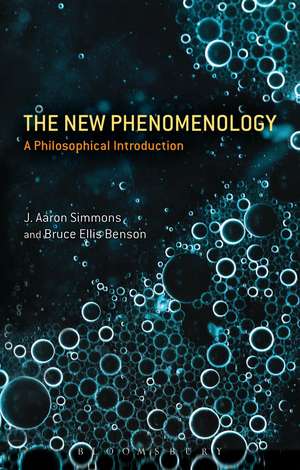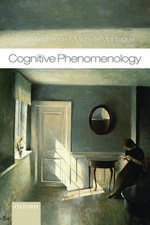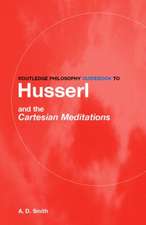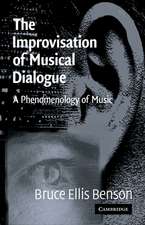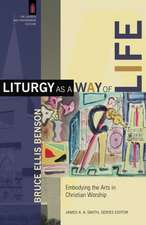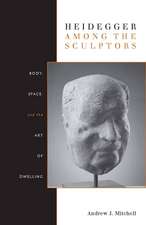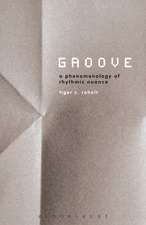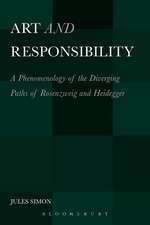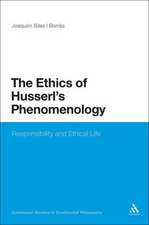The New Phenomenology: A Philosophical Introduction
Autor Professor J. Aaron Simmons, Dr Bruce Ellis Bensonen Limba Engleză Paperback – 31 iul 2013
| Toate formatele și edițiile | Preț | Express |
|---|---|---|
| Paperback (1) | 179.10 lei 43-57 zile | |
| Bloomsbury Publishing – 31 iul 2013 | 179.10 lei 43-57 zile | |
| Hardback (1) | 714.51 lei 43-57 zile | |
| Bloomsbury Publishing – 31 iul 2013 | 714.51 lei 43-57 zile |
Preț: 179.10 lei
Preț vechi: 207.81 lei
-14% Nou
Puncte Express: 269
Preț estimativ în valută:
34.28€ • 37.25$ • 28.82£
34.28€ • 37.25$ • 28.82£
Carte tipărită la comandă
Livrare economică 21 aprilie-05 mai
Preluare comenzi: 021 569.72.76
Specificații
ISBN-13: 9781441182838
ISBN-10: 1441182837
Pagini: 296
Dimensiuni: 138 x 216 x 18 mm
Greutate: 0.36 kg
Editura: Bloomsbury Publishing
Colecția Bloomsbury Academic
Locul publicării:London, United Kingdom
ISBN-10: 1441182837
Pagini: 296
Dimensiuni: 138 x 216 x 18 mm
Greutate: 0.36 kg
Editura: Bloomsbury Publishing
Colecția Bloomsbury Academic
Locul publicării:London, United Kingdom
Caracteristici
Critically examines the work of such thinkers as Jacques Derrida, Michel Henry and Emmanuel Levinas.
Notă biografică
J. Aaron Simmons is Assistant Professor of Philosophy at Furman University, USA. He is the author of God and the Other: Ethics and Politics After the 'Theological Turn' (2011), and the co-editor of Reexamining Deconstruction and Determinate Religion (2012), and Kierkegaard and Levinas: Ethics, Politics and Religion (2008).Bruce Ellis Benson is Professor of Philosophy at Wheaton College, USA. Among his many publications are The Improvisation of Musical Dialogue (2003) and Pious Nietzsche: Decadence and Dionysian Faith (2008).
Cuprins
AcknowledgementsA Note on the CollaborationIntroduction: Welcome to the Family1. The Sources of New Phenomenology in Husserl and Heidegger2. How to Be a Phenomenological Heretic: The Origins and Development of New Phenomenology3. Phenomenology and Onto-Theology4. Phenomenology and Theology Reconsidered5. New Phenomenology on the Existence and Nature of God6. The Call, Prayer, and Christian Philosophy7. Proposals for New Phenomenology and Analytic Philosophy of Religion8. Normativity: Ethics, Politics, and Society Conclusion: Possible Futures for New PhenomenologyNotesBibliographyIndex
Recenzii
This book makes a constructive contribution to an important and growing philosophical discussion ... [It] offers not only an introduction to the philosophers considered, but also a fresh perspective from which to read them.
A rich resource both as a lucid introduction and as a bold interpretation of the thought of Derrida, Levinas, Henry, Marion, and Chrétien as phenomenological "heretics" against the background of Husserl and Heidegger. Careful attention is given to their significance for both the philosophy of religion and the very idea of phenomenology itself. Specific suggestions are made for cross-fertilization between these "continental" thinkers and the "analytic" philosophy of religion, along with proposals for the significance of an essentially descriptive enterprise for normative questions of ethics, politics, and society.
Simmons and Benson offer us one of the first attempts to survey efforts in France since the early 1960s to break down the alleged barrier between phenomenology and theology. Of particular interest is a rare and welcome move, late in the book, to connect contemporary French philosophy of religion with work being done in the Anglo-American world.
Benson and Simmons' The New Phenomenology is a timely addition to current debates in philosophy as well as theology. The book aptly shows the origins and future possibilities of the thought of these new phenomenologists in an overview which spans some of the most compelling thinkers today. Benson and Simmons succeed in making this material highly accessible: all students of phenomenology will greatly benefit from this work.
A rich resource both as a lucid introduction and as a bold interpretation of the thought of Derrida, Levinas, Henry, Marion, and Chrétien as phenomenological "heretics" against the background of Husserl and Heidegger. Careful attention is given to their significance for both the philosophy of religion and the very idea of phenomenology itself. Specific suggestions are made for cross-fertilization between these "continental" thinkers and the "analytic" philosophy of religion, along with proposals for the significance of an essentially descriptive enterprise for normative questions of ethics, politics, and society.
Simmons and Benson offer us one of the first attempts to survey efforts in France since the early 1960s to break down the alleged barrier between phenomenology and theology. Of particular interest is a rare and welcome move, late in the book, to connect contemporary French philosophy of religion with work being done in the Anglo-American world.
Benson and Simmons' The New Phenomenology is a timely addition to current debates in philosophy as well as theology. The book aptly shows the origins and future possibilities of the thought of these new phenomenologists in an overview which spans some of the most compelling thinkers today. Benson and Simmons succeed in making this material highly accessible: all students of phenomenology will greatly benefit from this work.
Descriere
The first available introduction to the 'theological turn' in contemporary French thought. Starting with Emmanuel Levinas and Michel Henry, it also examines later works by the likes of Jacques Derrida, Jean-Luc Marion and Jean-Louis Chretien: an essential read for anyone seeking an overview of this important strand of contemporary European thought.
